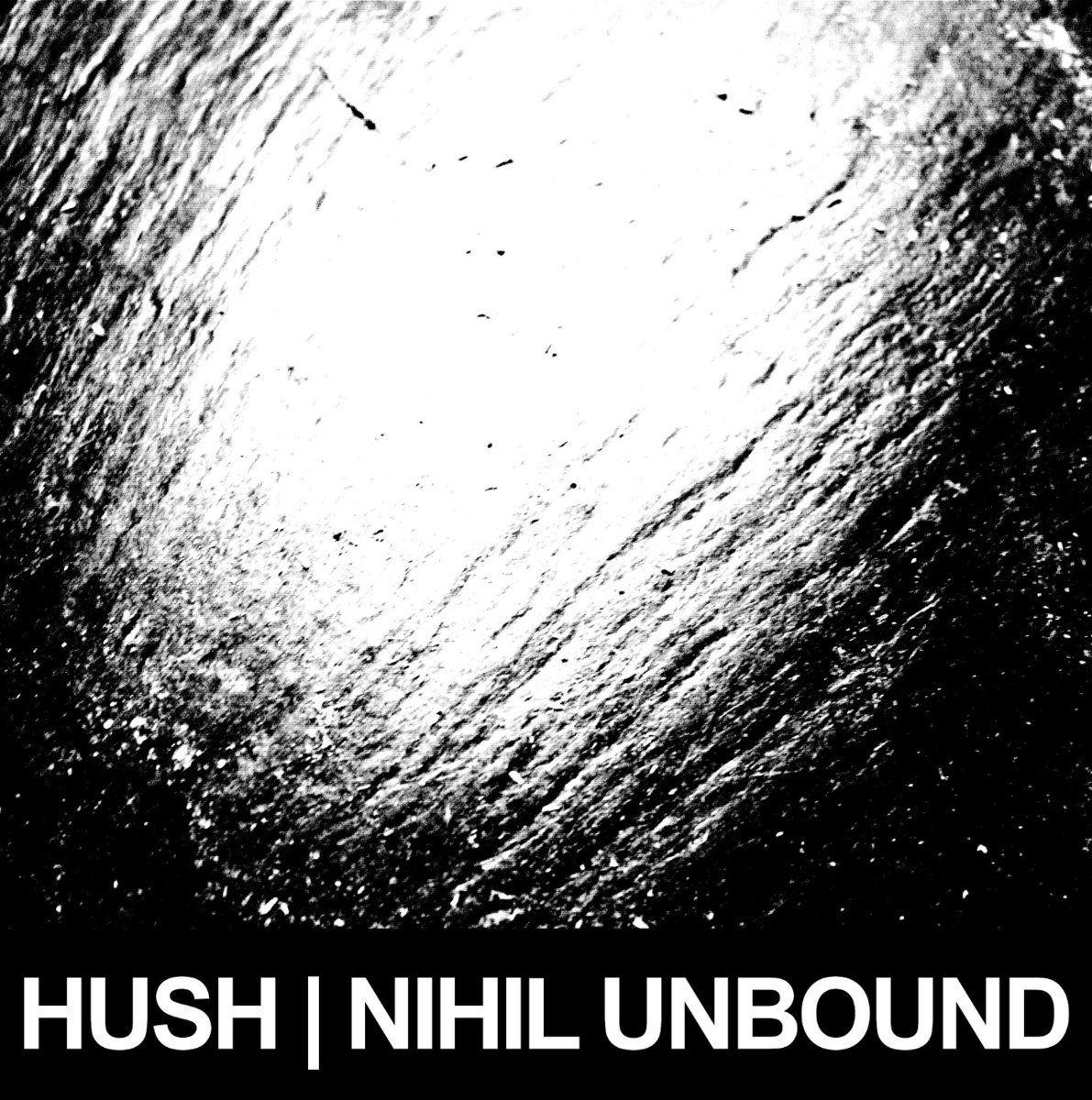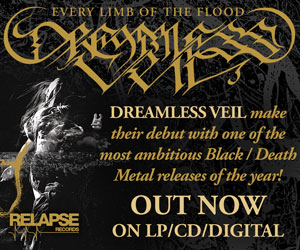Since this band dropped into my life last year, they’ve been on constant rotation. With the heaviness of Neurosis and other like-minded projects, injected with the emotional weight of Ebullition-era styled hardcore, HUSH are without a doubt dwelling in the shadows of extreme metal, ready to pounce upon our collective jugulars. For those that haven’t heard rumblings of this upstate New York behemoth, take note. Their newest EP, entitled “Nihil Unbound” has been unleashed and it is without a doubt thought-provoking, neck-breaking and some of the best stuff HUSH have crafted thus far. I had the chance to pick vocalist Charles Cure’s brain a bit over the last two months or so, as the band prepped for a number of upcoming shows and this new EP. Dig in.
There’s always a defining moment for people that get into underground music – be it a person or even walking into a record store and seeing a certain record that called out to you – that serves as a gateway into this music and lifestyle. For you, personally, can you recall when and where you fell in love with extreme music? Was it somebody handing you a copy of Black Sabbath’s Masters of Reality, or were you one of the lucky ones who just stumbled blindly into it?
Charles: I didn’t grow up with any older brothers or sisters, and my parents…they don’t care about music like a musician or artist would. They listened to whatever was on the radio or popular or whatever. So, weirdly, when I was a child, I didn’t really have any feelings about music beyond maybe liking a song because there was a catchy part that was designed to be catchy. When I was 12 or 13, I met this kid in school whose older brother was into heavy metal, which, in the small town where I lived, it seemed somehow taboo or subversive even to have a tape with that kind of music on it. So that kid gave me a copy of the Megadeth Rust in Peace tape. That was my gateway, the beginning riff of “Holy Wars”…everything about that tape to me, at the time, was a world away from what I knew about music. The lyrics were serious and angry, the music was aggressive and complicated, and for real, up until that moment, I was not even aware that music could be that way at all. From there I kind of got into whatever your basic 1990 heavy metal kid starter kit would be – Megadeth, Metallica, Slayer, Pantera. Pantera was the first thing I ever heard that I thought of as extreme, really – the Vulgar Display of Power record. Around that time, someone also turned me on to a local college radio station that had a 3 or 4 hour show every night that played lots of underground and local metal and hardcore. I listened to that religiously, I used to tape it. I remember hearing Crowbar for the first time on that radio show and being totally blown away and listening to the song over and over on my shitty mixtape. That was pretty much it for me, I loved all of it.
Once you moved past the traditional, more gateway metal stuff – which as a side note, all those records really still hold up to the test of time – what bands did you discover, the more underground DIY and extreme acts, who really changed your way of thinking about music?
It was the mid to late 90s, so the beginnings of metalcore were happening and some of those early bands had a big impact on me – Starkweather, Overcast, Coalesce, Bloodlet, etc. Also some crustier, more politically oriented bands from the Crimethinc scene like His Hero Is Gone and Catharsis really engaged me in a completely new way at the time. In 97, I went to college near the Canadian border for a few years and there I got introduced to amazing bands from Canada like Ire, Acrid, The Swarm, Buried Inside, Godspeed You Black Emperor. I also remember hearing Burning Witch for the first time in the record store up there and being totally mind-blown. I would bounce back and forth between this crustier, doomier, more metal-oriented scene where I was going to college, and the scene back home which was bigger and more eclectic, but more focused toward hardcore and metalcore. Looking back at that, it was cool to be exposed to so much at once, it made me appreciate things differently than I might have otherwise. Most of the stuff I mentioned has held up for me over time and shaped some aspect of my artistic process or my conception of what kind of aesthetic a really heavy band should have.
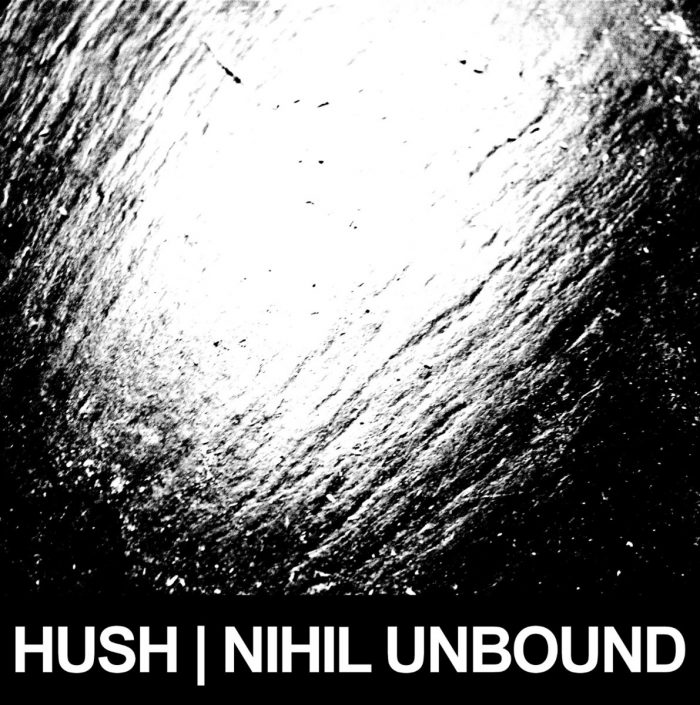

Man, you mentioned those Canadian bands from that era and I just had a flashback to my younger years in Detroit seeing some of those projects live. Acrid and Ire specifically. It’s gotta be something in the water up there. Even these days, the Quebec scene is churning out some particularity nasty Black Metal. Since you’ve been involved with the underground scene for so long, and in some what close distance to the Canadian border, why the hell don’t those guys get more recognition for what they’re doing state side?
I’m not sure. In some previous bands I have been in, I’ve toured a bit in Canada, and I think as an American it’s tempting to view it as some kind of microcosm of the American scene, but it’s totally its own thing. I’d encounter huge bands up there that I had never even heard of here at all, and think – why haven’t you made it into the US? In retrospect, though, that’s kind of weirdly an American thought. If I was in a Canadian band, I’d probably skip the US and go directly to Europe instead. Compared to some other places, most of the US isn’t very kind to heavy music in recent years.
And on a similar note, you’ve lived in upstate New York, about two hours from NYC correct? I’ve always felt that NYC had this bubble around in it. That it was almost impossible to get out of or get into for some bands. From your perspective, is there a difference when you guys come down here to play, as opposed to say playing a show more local to you and the band?
Yeah, definitely. Part of what makes NYC great is that things exist there that would fail almost anywhere else in the country. A place like St. Vitus is a good example; you could have that in maybe two or three cities in the US where it would survive for more than a year. In NYC it thrives. It did take us a minute to get into the city to play, but it was worth it. I really love playing there, places like Vitus, Acheron, ABC No Rio etc. provide a home for niche and avant garde heavy bands where they can perform for and amongst their peers. You don’t find that almost anywhere else and even though we aren’t locals, I always feel welcome there.
Upstate is a bit different – everyone is spread out, there are less people in general to gather around and support a nascent underground scene or group of bands doing something outside the lines. We practice in Albany, so that’s what you would call our hometown, but we rarely play local shows there. A lot of bands get trapped in that local scene and never leave, and we have kind of made ourselves purposely homeless so as to not get caught up in that. We don’t want to get too comfortable in one spot, I think that a lack of comfort forces you to be forward thinking and challenging in your art.
While I would love to talk shop about NYC and old hardcore for this entire interview, I have to switch gears for a minute. One of the first things that really grabbed my attention about HUSH was that you guys were totally willing to give your music away for free. There’re not a lot of artists these days that will do, considering the time and money involved. Being in a underground DIY band isn’t cheap, nor has it ever been. It’s a labor of love. Is that something you and the band agree with? More so, how important is the D.I.Y ethic to not only you, but the band as a whole?
Charles: Honestly, for me the DIY ethic is a pervasive mindset. It extends deep into my life beyond my involvement with HUSH, but I am extremely fortunate to find myself in a band with people who share that ideal.
It is very important to us that we control all aspects of our band, that we make things ourselves, and when something we want to do is beyond our collective skill or means to accomplish, it is important that the people we work with to achieve it understand and embrace our approach. We have been lucky to meet and befriend some really extraordinary collaborators and we keep them close.
We give away the digital version of our records because we aren’t in a band to sell recordings, we are in a band to create something that, when heard or experienced, transcends the simple mechanisms of its creation and offers a glimpse into another place or immerses you in a specific feeling, atmosphere, or thought process. We don’t make what we make so it can be locked up behind a $10 price tag, and we don’t make what we make in order to sell a product, we just do it because it is somehow an essential part of our nature. When we produce actual physical items, we sell them – but that’s a secondary thing to us. Creating is our main concern, and in that sense, there is no other way than DIY.
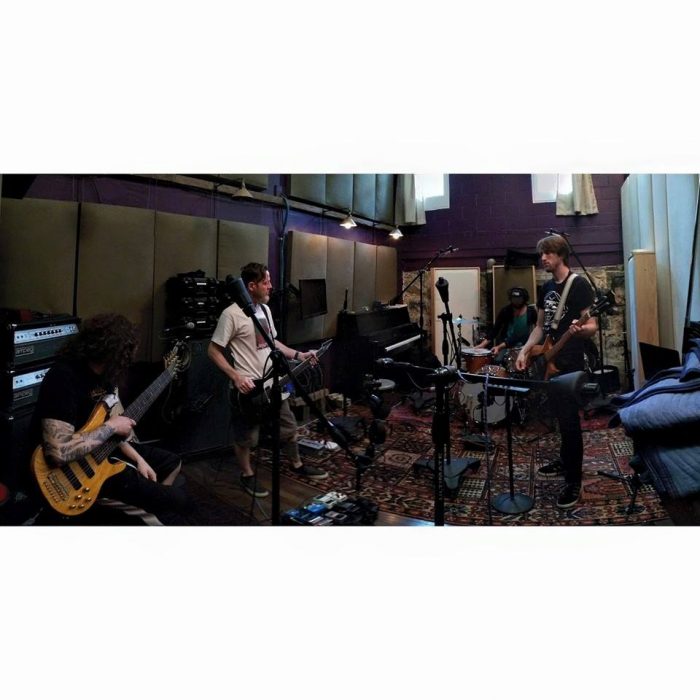

All of us, that is humans, have to inevitably face the fact of growing older, leaving things and loved ones behind. Obviously, it varies for each person, but for those that are involved in the DIY Hardcore Punk scene, it’s a little bit different than the normal person. Balancing out those ethics and morals with the very real reality of growing older and facing responsibilities often cause a conflict. When the aging punk is faced with mounting bills, kids and other complications, one is often left taking a good hard look at the DIY lifestyle. For you, personally, how has marrying the ethos of DIY and growing older been not only possible, but a meaningful way of existence in this shit-story of humanity?
Charles: For me, it has been like anything else. As you get older, you need to adapt to new realities and adjust your expectations, both of yourself and of others. As far as that applies to being in a DIY/underground band, I think what that entails is finding a balance in terms of what is reasonable to accomplish and what isn’t. For HUSH, a number of us have lives outside the band that require us to be present and responsible for more than just making music. That in and of itself is not an impediment to creating, but it means that from the outset we have had to accept that touring and live performance will occur only when it is possible for all of us to do it, and you have to respect each other enough to sometimes say no to opportunities because one member is unable to do it. Sometimes, it’s possible to find workarounds, other times you just have to be patient.
While I feel the encroachment of adult life and all of its complications, I still can’t bring myself to abandon creating music and art, even when it has costs some other people don’t think are worth the reward. Maybe it goes without saying, but we currently live in a world where authenticity, art, skill, intellect and devotion to craft are frequently devalued and forced to compete with cheap simulacra, which is a really unfortunate situation. To learn how to do things for yourself, push your own boundaries, make something from scratch, to transgress against all that is weak, disposable and temporary in the daily grind of our society – that has intrinsic value, even when it is a more difficult approach.
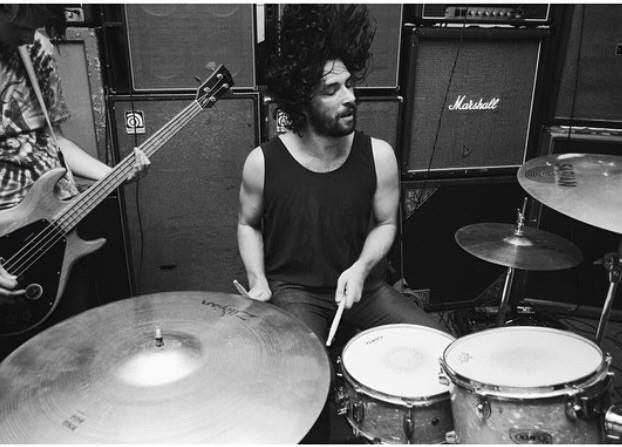

That statement you made about “Creating is our main concern…no other way than DIY” had me thinking a bit about the evolution of the DIY mentality in Punk and the Extreme Metal scene. With the introduction of the internet and file-sharing, it’s so much easier for a person or band to get their stuff out there. But at the same time, there are also a thousand other people doing the exact same thing, causing this cluster-fuck of over-information and sound. For a smaller band that is starting to garner some attention, what’s the feeling like for you and the rest of the band to have this entity you’ve all created and worked on be so well received? More importantly, what’s in store for 2016, outside of the new EP?
Charles: HUSH has always been a kind of idiosyncratic project, and I don’t know if we started off with any expectations about what other people would think of it. However, we have been really fortunate to be heard and supported by our peers, and to be able to travel a little and commune with people who appreciate the same music and aesthetic that we do. As you said, on the internet it is difficult to distinguish yourself from a hundred other bands giving their music away and starting from zero, so to find that your art has managed to effect people or resonate in a broader way is really gratifying.
As far as 2016 goes, we start off with some shows in the winter and spring, around the digital and vinyl releases of Nihil Unbound, and after that there are a couple other things in the works. We are currently finishing some writing for a split that will come out sometime this year, and hope to extend our live presence with more shows, and possibly with a short tour if the logistics line up properly. Beyond that, we will continue to live slow and eventually die heavy.


